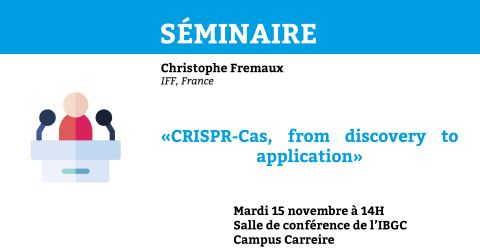CRISPR-Cas, from discovery to application
Christophe Fremaux, IFF Laureate, is a Technical Fellow at IFF for Health & Bioscience Division.
Among his main achievements during the 28 years spent in the company was the discovery of the role of CRISPR-Cas in bacterial immunity against invading DNA.
Bacterial viruses (bacteriophages) cause considerable losses every year in the industry, especially in the production of fermented dairy products such as yogurt and cheese. To combat this problem, starter culture producers have studied these bacteriophages for decades, evaluating their diversity and their relationships with their hosts. These studies in Streptococcus thermophilus led to the discovery of the bacterial immune system known as the CRISPR-Cas system. This mechanism evolves over time upon "encountering" foreign nucleic acids (such as bacteriophage DNA) in an immunization process. Subsequently, thanks to Cas enzymes, the bacterium will be able to specifically destroy this nucleic acid. It is these Cas enzymes, in particular the Cas9 enzyme, that have been used to revolutionize genome editing techniques; subject of the Nobel Prize in Chemistry in 2020.


